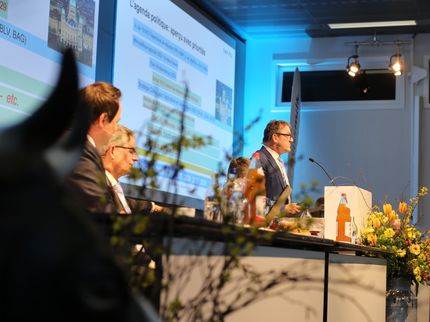Light and shade on the milk market
Challenges at the beginning of 2024
Advertisement
"At the beginning of 2024, the dairy market has both light and shade," says Peter Stahl, Chairman of the German Dairy Industry Association, at the 14th Berlin milk Forum. Producer prices are at a historically high level and the volumes of milk produced are roughly the same as in the previous year. The sales markets are currently lacking impetus, only butter and cheese are characterized by a good demand situation. The increasing political demands for the implementation of Article 148, the ideas for regulating pasture farming, freedom from deforestation and the Supply Chain Act are thought-provoking. In the end, these all lead to more bureaucracy without creating more added value.
The development of Article 148 of the CMO is a particular cause for concern. Following the Federal Ministry of Agriculture's 2023 summer conference, the BMEL presented a results program in mid-March 2024. This envisages that the contractual relationships between milk producers and processors will be regulated by law, based on the old EU legislation from 2013. However, the current plan is not supported by the vast majority of German milk producers - and the aforementioned summer conference came to completely different conclusions. The current paper is therefore not a consensus. "As the MIV, we cannot understand where the justification for further interventions in the market organization should come from," Peter Stahl reiterates his position on this point.
The association is also critical of regulating the issue of pasture milk by law and not relying on the industry's solutions that work in practice. For pasture milk, cattle must be on pasture for at least six hours on at least 120 days. This definition has recently been confirmed by the courts. However, the federal government now wants to tighten this definition. Among other things, minimum forage areas and controls are planned. "Germany does not have to go it alone on this point, there are no regulations on this in Europe," says the MIV Chairman. "This is unnecessary bureaucracy and ignores reality," he criticizes.
Pasture milk is enjoying increasing popularity within the dairy industry and among consumers, as shown by sales trends in the food retail sector in recent years. While the consumer milk market has been suffering for several years, and not just in Germany, sales figures for pasture milk have risen to over 11% of the consumer milk market. At around +36%, the increase in the plant-based drinks sector has almost tripled by 2023.
Consumers' buying interest has shifted overall in times of crisis. Consumers are saving on food because they no longer have as much money in their pockets due to inflation and high energy prices. As a result, some products are under pressure, with opportunities in the fat sector. In such times of crisis, consumers tend to look at the price. This also applies to the international market, where exports of milk and dairy products have recently lost momentum amid tight stocks. On the one hand, China has significantly increased its own production in the past year, while on the other hand New Zealand has adjusted its product portfolio and at the same time has advantages due to various trade agreements.
Irrespective of purchasing behavior, experts from the German Nutrition Society (DGE) recommend consuming less animal-based food. Overall, three quarters of the daily requirement should be covered by plant-based products. From a nutritional point of view, the DGE is facing a strong headwind because milk is an important source of high-quality protein and essential amino and fatty acids. The DGE recommendations do not reflect the habits of consumers and people's health statuses also differ. Preventive physicians even warn that adherence to the recommendations can lead to nutritional deficiencies.
Turning point, the theme of this year's Milk Forum, means not least adapting, being flexible and finding new ways to grow together. The world is becoming increasingly complex, everything is connected to everything else. "Healthy nutrition is important, as are climate protection and animal welfare. The demands on companies are increasing. Politicians must be aware that the people in the companies must not be overburdened, they must find a way to ensure that the food industry in Germany also has a perspective," Peter Stahl summarizes the industry meeting.
Note: This article has been translated using a computer system without human intervention. LUMITOS offers these automatic translations to present a wider range of current news. Since this article has been translated with automatic translation, it is possible that it contains errors in vocabulary, syntax or grammar. The original article in German can be found here.































































